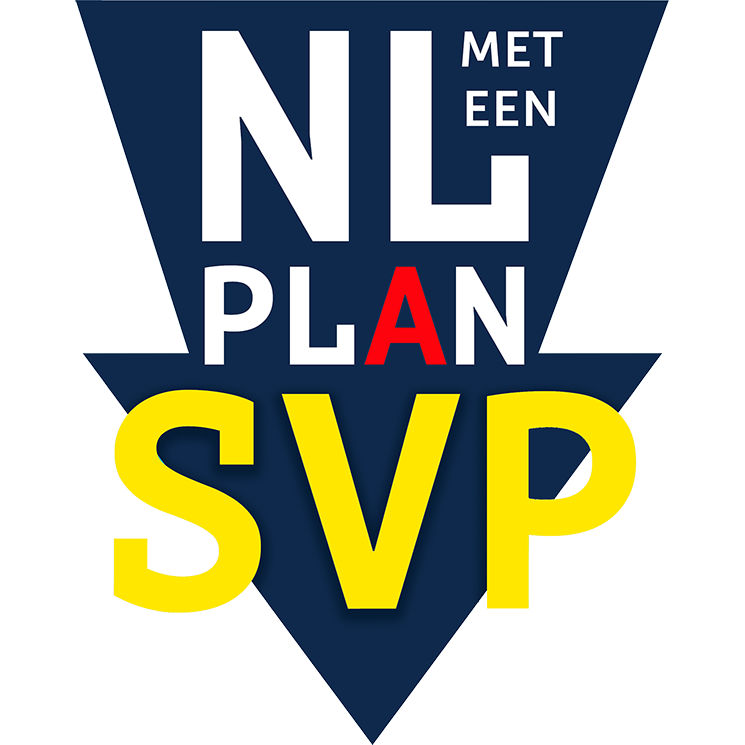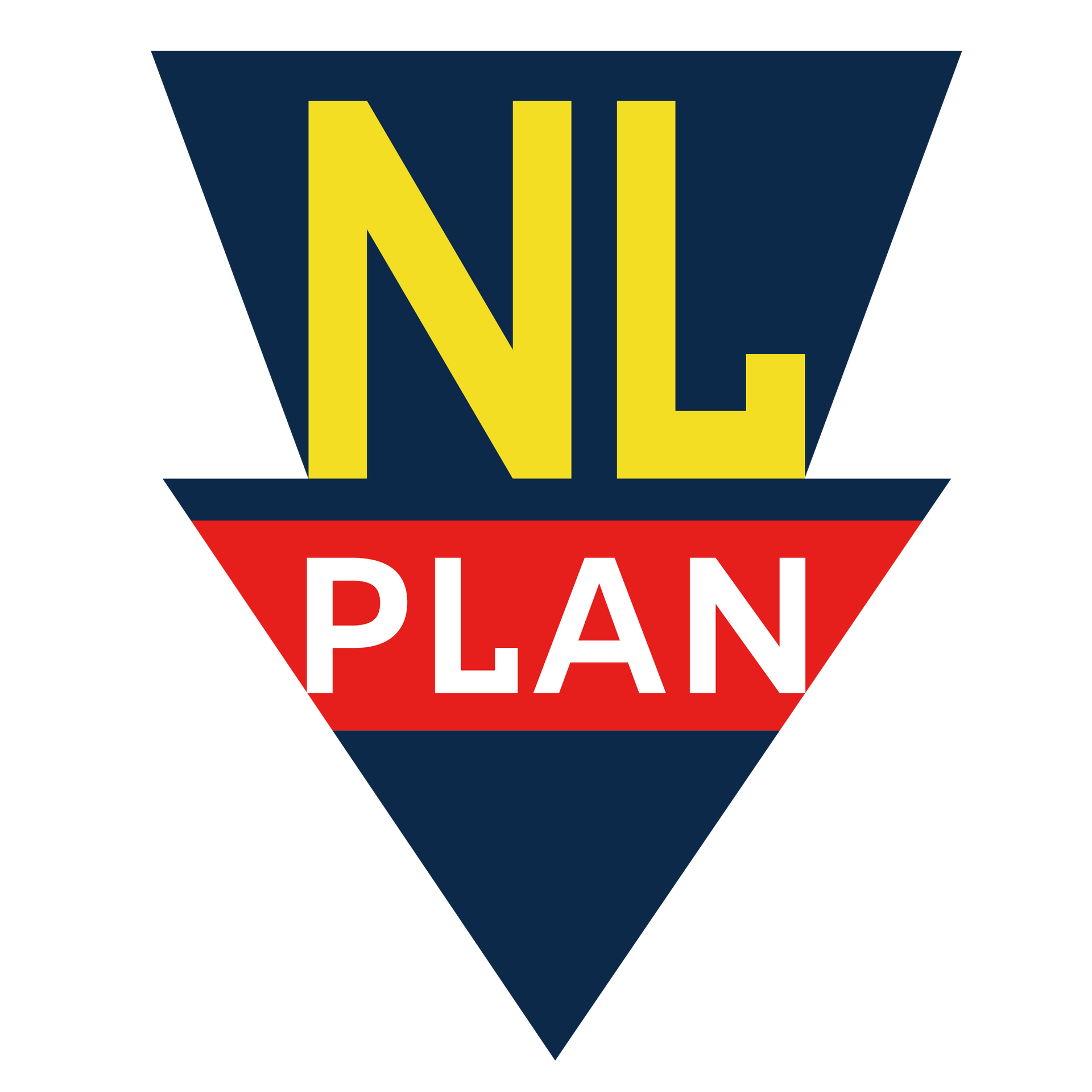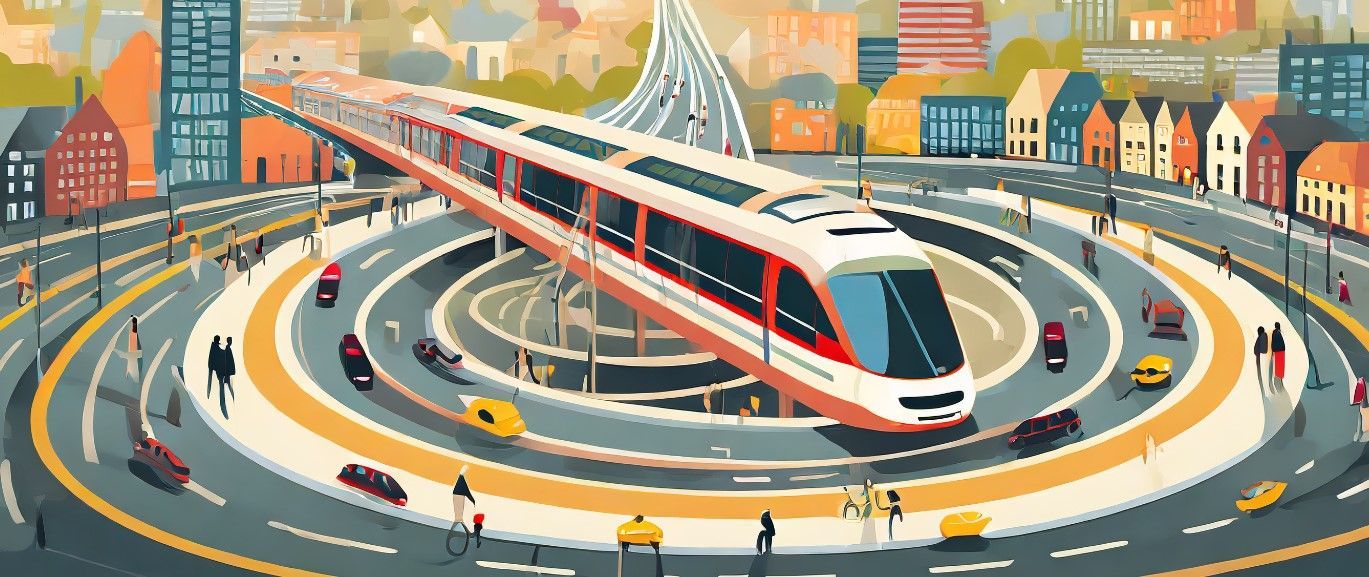Traffic and Transport
The car gives people the precious freedom to explore the world, and for many it is an important part of their existence. On the other hand, there are too many cars in a relatively small territory, and especially in big cities, space is scarce and expensive. Cars take up a lot of space, have hefty costs and are not good for air quality. We want to grant people the freedom of the sacred cow, but at the same time pass on the real price including external costs. How are we going to do this?
Bike
The bicycle is the national transport symbol in the Netherlands
Long live the bicycle! We encourage cycling with bicycle paths (CROW guidelines), creative and innovative bicycle zones and free parking facilities. Cycling is good for your health and it is important to encourage this in a safe way. Bike lanes are placed where possible and in balance with motorized traffic. We favor customization in consultation with residents and local business owners.
Express bicycles
Fast electric bicycles of 45 km/h are increasingly common. These are too slow on provincial roads and too fast for a normal bicycle path. An additional fast bike lane should therefore be considered. Mixing functions in areas shortens the distances many people have to travel and will contribute to bicycle use.
Car and roads
Hydrogen as a new source of energy
The development of electric cars must be stopped. To keep up with the growth of electric cars, some 45 thousand additional wind turbines and 600 million additional solar panels are needed by 2040. It won't be long before the power grid simply simply can no longer cope.
To do so, 13 offshore wind turbines, 43 onshore wind turbines and 800 thousand solar panels would have to be added every week for 800 weeks in a row. So we will have to invest much more in, for example, the hydrogen fuel cell, which is also more recyclable than, say, a battery.
NL PLAN is for reliable and free public transportation so that there is less need to own and purchase a car.
Expanding roads
Only when necessary are roads expanded by municipalities and province in consultation with residents and local entrepreneurs. NL PLAN is a green party when it comes to reducing harmful substances in the environment and preventing damage to nature. Toxins and particulate matter can be reduced by investing in better and cleaner public transportation.
Kilometer charging via the odometer
Every motorist should contribute to polluting the environment, but raising road taxes is not the solution. The government should not use the car as a cash cow. However, we do make road tax equal between different types of vehicles. So electric vehicles pay the same amount of road tax as gasoline or diesel vehicles.
Alternatively, we can consider abolishing the road tax, with a mileage charge in its place. This encourages people to abandon their cars more and ensures that taxes are paid proportionally to the number of miles driven. No expensive and bureaucratic control system for road pricing, which also affects our privacy. Road tax via road pricing we do simply and easily through the annual MOT inspection.
Paid parking, only where it has to be
Paid parking has spread across the country like an oil slick and rates have risen sharply in a short period of time. In a Dutch provincial city, parking rates are currently higher than in the principality of Monaco! And that is not only the richest, but also the city-state with the least public space.
Paid parking only for inner cities. The rest of the country remains free parking. More underground parking garages and a more extensive permit and subscription system for residents and working people.
Speed fines sharply reduced
Car owners pay a hefty but fair price for their cars. NL PLAN does not participate in frustration raising and moralistic punitive policies. Fewer speed cameras, speed camera warnings and wider speed camera margins. We advocate a lenient tolerance policy.
No commercial penalty companies
In a rule of law, the imposition of a criminal fine is reserved for the government and not an interested commercial company. Such commercial supervisory companies, as well as functions such as special investigating officers (boas), can be abolished. The fine-targeting system creates self-interest within the criminal regime and is vigorously opposed. The government sanctions through (traffic) police.
Unjust fine is compensation
In case of an unjustified fine, the government pays the aggrieved citizen not only the fine back, but also the same amount as compensation. The offender receives an entry in his register.
Train, bus, subway
Free public transportation for every Dutch person
Much more should be invested in public transport. By making it free for all Dutch people, fewer people will choose the more polluting car. People will get in and out of the city faster and outlying areas will become more easily accessible. Tourists do pay for train, bus and metro.
Public transport for small villages
Much more must be invested in public transportation to ensure that the short chains between city and surrounding areas are facilitated. This is very important for a circular food strategy and a circular economy. The use of waterways is interesting in this regard. Travel times are reduced and car traffic, and thus the burden on the environment, is reduced.
Local traffic should be promoted if we opt for a circular economy and smaller footprint. Cooperation at the regional level can be well promoted by the province, and this will contribute to the accessibility, livability and attractiveness of small villages.
More high-speed lines between all European cities.
There should be a high-quality high-speed rail network between the main European cities. In this way, European aviation at Schiphol can be phased out. It is unnecessary that it takes more than 6.5 hours by train to travel from Amsterdam to Berlin.
Cab
Cab cheaper and more common
The liberalization of the cab law has brought more cab drivers, but not lower prices, and limited growth in cab use. There needs to be more driving at a lower fare. It must become normal in cities to stop or connect cabs with modern means of communication. Cab stops lose their monopoly, as they only support companies that want to compete on price.
Water transport
Use our waterways
Waterways offer unprecedented opportunities for high-quality and pleasant growth of pleasure boating and regular public transit infrastructure.
Air traffic
Green/environmental taxes for air travel.
Low-cost carriers have brought down airfares and offered more citizens travel freedom. Flying is energy-intensive and produces many air pollutant emissions. Given the international competition in aviation, a green tax for air travel should be arranged in a European or global context. Green tax in the form of a mileage tax and depending on the number of times a year you fly. Flying multiple times in a year means substantially more Green Tax.
Containment of Schiphol
The amount of particulate matter and noise pollution around Schiphol Airport is sickening. For years the public health problems public health problems have been ignored for years. The airport should be stimulated to contribute to public health and look for solutions, among other things by gradually limiting the number of flights to flights outside Europe.
European transportation can also be expanded through high-speed rail, and the circular economy promotes short chains and reduces product supply through Schiphol. The province is the appropriate level of government to promote this circular economy and contribution to short chains. Schiphol itself, like other European airports, should quickly reduce the number of night flights in connection with the sleep of over a million people. We do not support the trade in nitrogen rights, whereby farmers are bought out so that Schiphol can emit more nitrogen.
Navigate using the red buttons below to read the rest.




